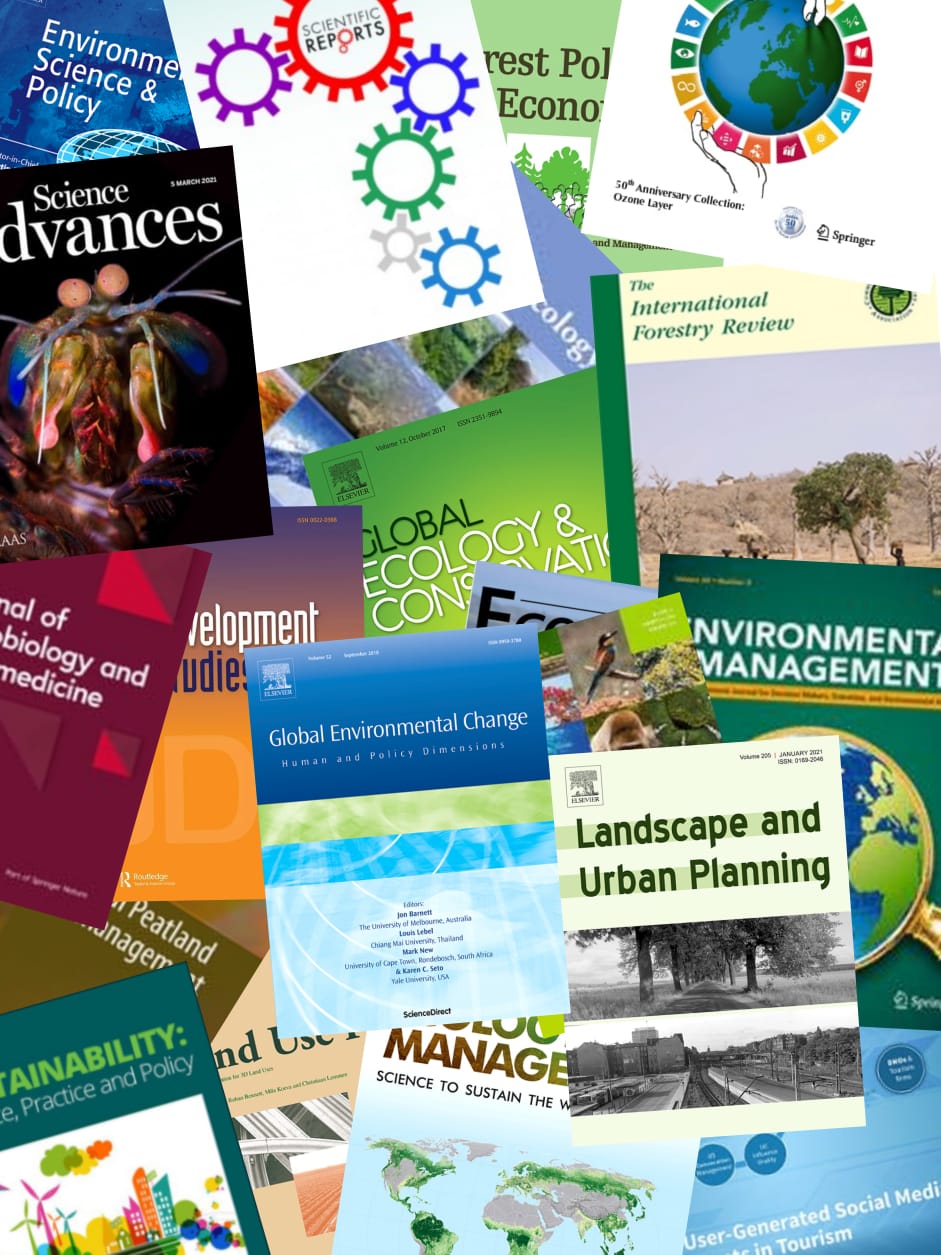Connections between human activities (social systems) and nature (ecological systems) are key factors affecting forest-cover change in tropical peatland ecosystems. However, the complexity of these socio-ecological factors is often poorly understood. This study identifies the socio-ecological factors influencing land-cover change in the ex- Mega Rice Project area of Central Kalimantan Province, Indonesia. A systems thinking approach was used to construct two causal loop diagrams to assess the interrelationships between land-cover change, actors' choice and their motivation to convert land cover. The analysis reveals that current community livelihood activities to improve welfare and maintain food availability are the main endogenous drivers of land- and forest-cover change in the study area. Unintentional fire resulting fromuncontrolled slash-and-burn practices by local communities is the main mechanism of forest-cover change. Land tenure uncertainty has also accelerated community land claiming using fire. Our analysis indicates that forest access, commodity prices and rainfall patterns are dominant exogenous drivers of land-cover change. Programmes that emphasize sustainable sources of food and income for local communities in conjunction with physical peatland restoration activities, such as drainage canal-blocking and reforestation, should be the key features of interventions aimed at preventing further peatland degradation. © Institute of Chartered Foresters, 2013.
View source

